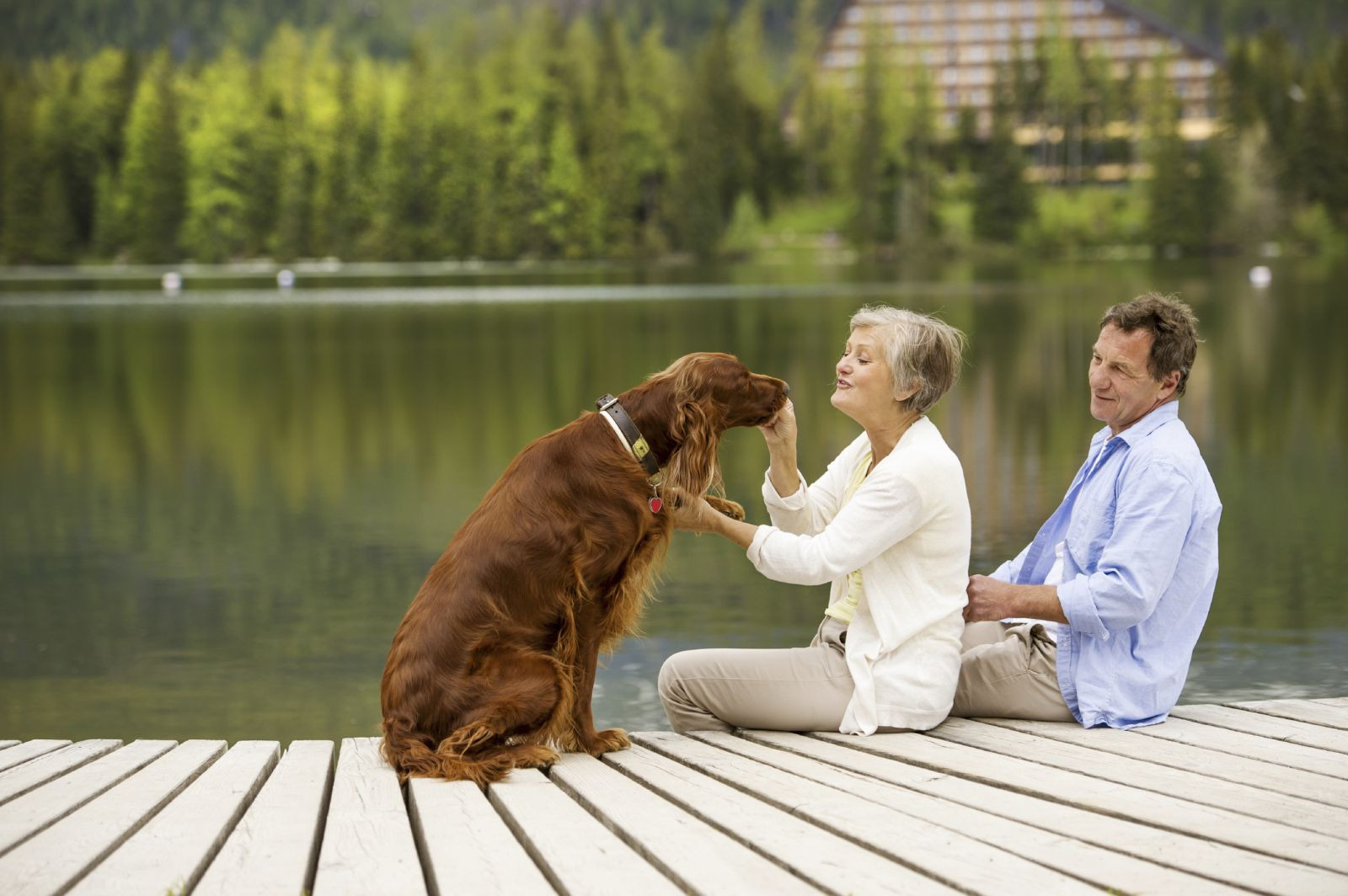Wag more: A tale of healthy living
|
|
Canine companionship yields heartfelt benefits for many people.
Sometime around the Stone Age, a few docile wolves crept out of the woods to warm themselves by the human campfire. The rest, as they say, is history. Today, nearly half of U.S. households include at least one canine family member. For most owners, the responsibilities and costs are easily outweighed by the unmatched love and devotion that dogs can offer.
Cuddly puppy pictures and gushy sentiments aside, can canine companionship make a real difference in your cardio-vascular health? According to Dr. Elizabeth Frates, assistant professor at Harvard Medical School, the answer is an emphatic "yes"—a conclusion backed by the American Heart Association's 2013 scientific statement on the benefits of pet ownership.
Go for walkies?
Dr. Frates admits that she wasn't always a dog lover. It was through her research into lifestyle and behavior change that she became a fan of the furry creatures. "We're in the midst of a diabetes and obesity epidemic in this country. Research shows that people who have a dog are far more likely to get the recommended 150 minutes of moderate physical activity each week," she says.
It's pretty easy to see how dogs work their magic. Your dog is the ultimate exercise partner. Unlike a human walking buddy, a dog will never choose to grab a cup of coffee instead of going for a brisk walk, no matter how miserable the weather. Dog ownership can even encourage physical activity among people who traditionally get less exercise. Walking with a dog may lessen an obese person's feelings of embarrassment about his or her appearance and ability to walk. Being out and about with a dog may also enhance your sense of social connectedness by providing opportunities to meet and interact with other people. Finally, a tired dog is a happy dog. You and your pup will likely both sleep soundly through the night after a good day of sniffing and fetching.
Blood pressure and beyond
In multiple studies, dog owners have been shown to have lower blood pressure than non-owners. One small study went so far as to explore if dog ownership could serve as a treatment for high blood pressure. Thirty people with borderline hypertension were assigned either to adopt a dog from a shelter or defer adoption to a later date. Blood pressure was similar in both groups at the start of the study. But over five months, systolic blood pressure (the first number in a reading) was significantly lower in the dog-adoption group. Later, blood pressure also declined for the other group, once they took their dogs home.
Stress busters
Interacting with a dog is calming for humans (and for the dogs, for that matter). People with dogs appear to have less cardiovascular reactivity when they are mentally stressed, meaning their heart rate and blood pressure go up less and return to normal more quickly. Researchers attribute this effect to a reduction in levels of the stress hormone cortisol. Among older adults in particular, dog ownership seems to confer a sense of well-being.
Dogs may also soothe loneliness and combat anxiety and depression. These positive responses may result from the release of oxytocin, a powerful hormone and brain chemical secreted by the pituitary gland during social bonding activities. Because the power of touch appears to be a major component of this "pet effect," cat owners should not despair. Time spent with feline friends may offer a comparable heart-calming payback.
Not a pill
If you think getting a dog may be just what the doctor ordered to improve your heart health, Dr. Frates says it's essential to understand what makes the canine connection so powerful. "A dog is not a pill like a cholesterol-lowering agent. The advantage comes out of the behavior changes that need to take place in order for you to walk and care for your dog," she says. If your living space or work schedule doesn't accommodate dog ownership, there are other avenues for achieving canine camaraderie. You can offer to take a neighbor's dog out for a daily jog or volunteer your dog-walking services at a local animal shelter.
How to walk a dog in 5 easy steps
Source: Harvard Medical School Special Health Report, Get Healthy, Get a Dog (/DOG) |
Disclaimer:
As a service to our readers, Harvard Health Publishing provides access to our library of archived content. Please note the date of last review or update on all articles.
No content on this site, regardless of date, should ever be used as a substitute for direct medical advice from your doctor or other qualified clinician.











 Animal companions offer emotional,social, and health benefits to their humans. Research suggests that dog owners are more likely to meet recommended physical activity goals and tend to have lower blood pressure than people who don't have dogs.
Animal companions offer emotional,social, and health benefits to their humans. Research suggests that dog owners are more likely to meet recommended physical activity goals and tend to have lower blood pressure than people who don't have dogs.
